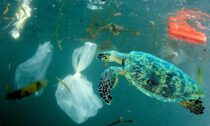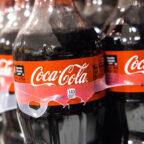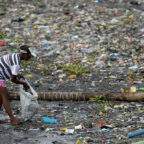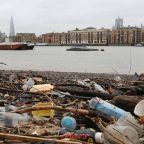
An agreement to negotiate a new legally-binding treaty to end plastic pollution has been hailed as “the most significant environmental multilateral deal” since the Paris climate accord, by the UN Environment Programme. Representatives of 175 countries backed a resolution at the UN Environment Assembly (UNEA) in Nairobi to draw up an international legally binding agreement by 2024 to help end plastic pollution.
“Against the backdrop of geopolitical turmoil, the UN Environment Assembly shows multilateral cooperation at its best,” said the President of UNEA-5 and Norway’s Minister for Climate and the Environment, Espen Barth Eide.
Plastic production has soared from two million tonnes in 1950 to 348 million tonnes in 2017, and is expected to double by 2040.
But plastics, made from oil, can cause harmful climate pollution in their production and disposal, such as when they are burned.
An estimated 11 million tonnes of plastics end up in the oceans each year, killing marine life that consume or become entangled.
Inger Andersen, executive director of the United Nations Environment Programme (Unep) said: “Today marks a triumph by planet earth over single-use plastics.”
She said it was the most significant environmental multilateral deal since the Paris accord, which committed all countries to take action to curb dangerous climate change.
“It is an insurance policy for this generation and future ones, so they may live with plastic and not be doomed by it,” she said.
Sky’s Ocean Rescue campaign launched in 2017 to raise awareness of plastic pollution in our seas and other threats to ocean health.
Graham Forbes, plastics campaigner at Greenpeace USA, called the resolution “a clear acknowledgment that the entire lifecycle of plastic, from fossil fuel extraction to disposal, creates pollution that is harmful to people and the planet.
“This is a big step that will keep the pressure on big oil and big brands to reduce their plastic footprint and switch their business models to refill and reuse.,” he said.















Social Profiles